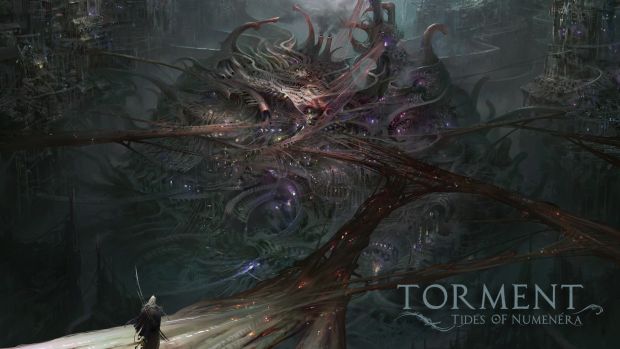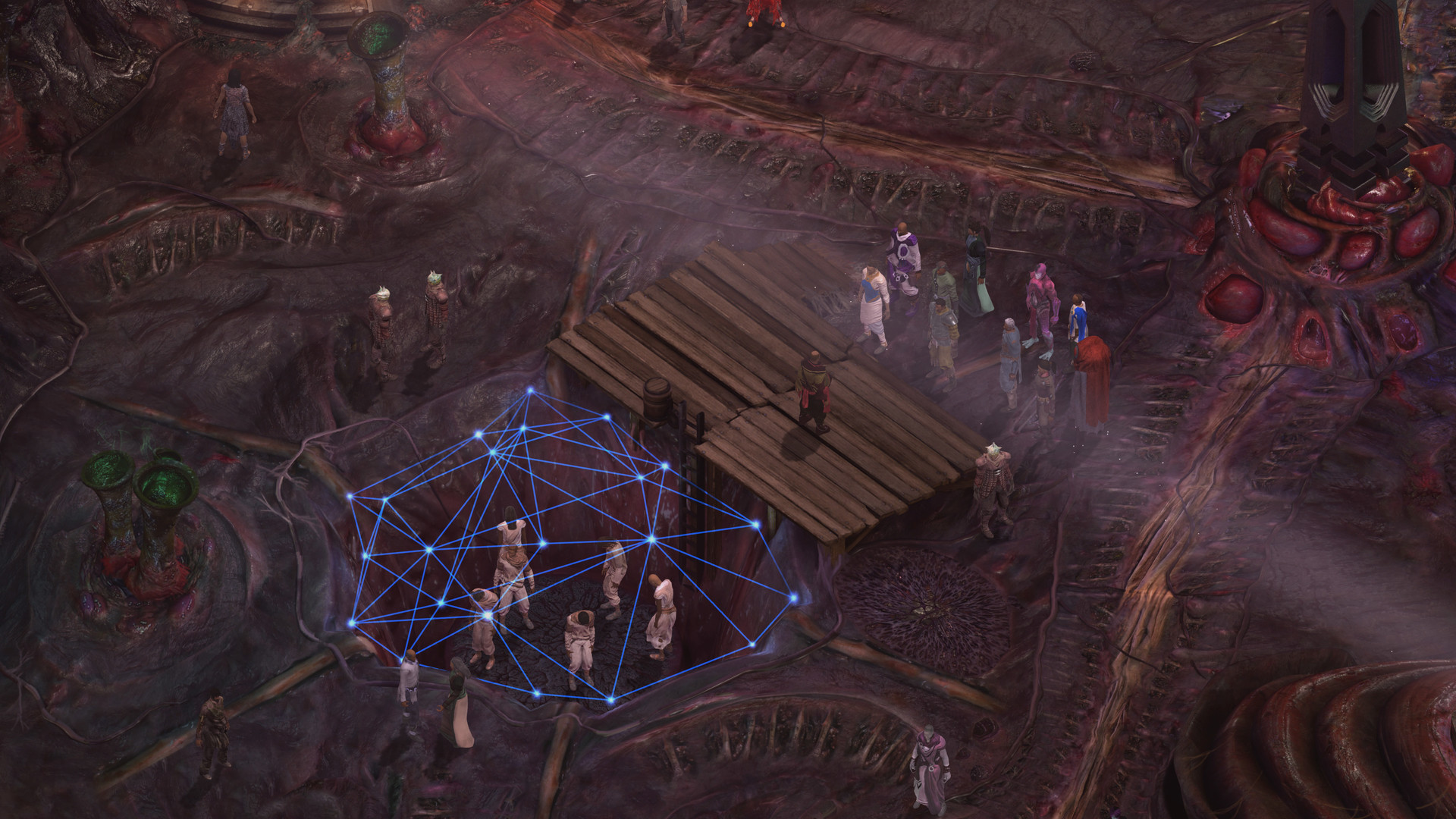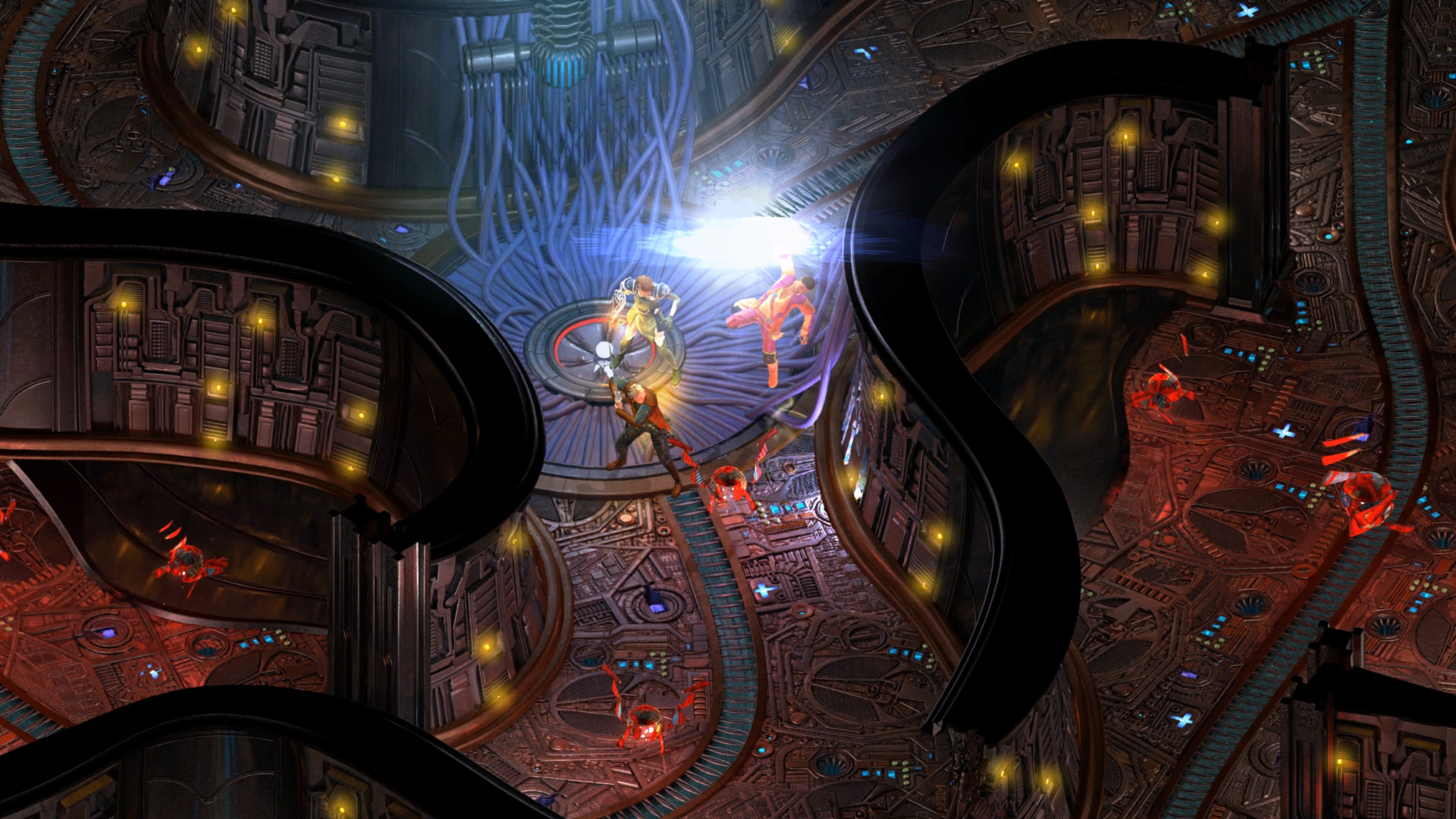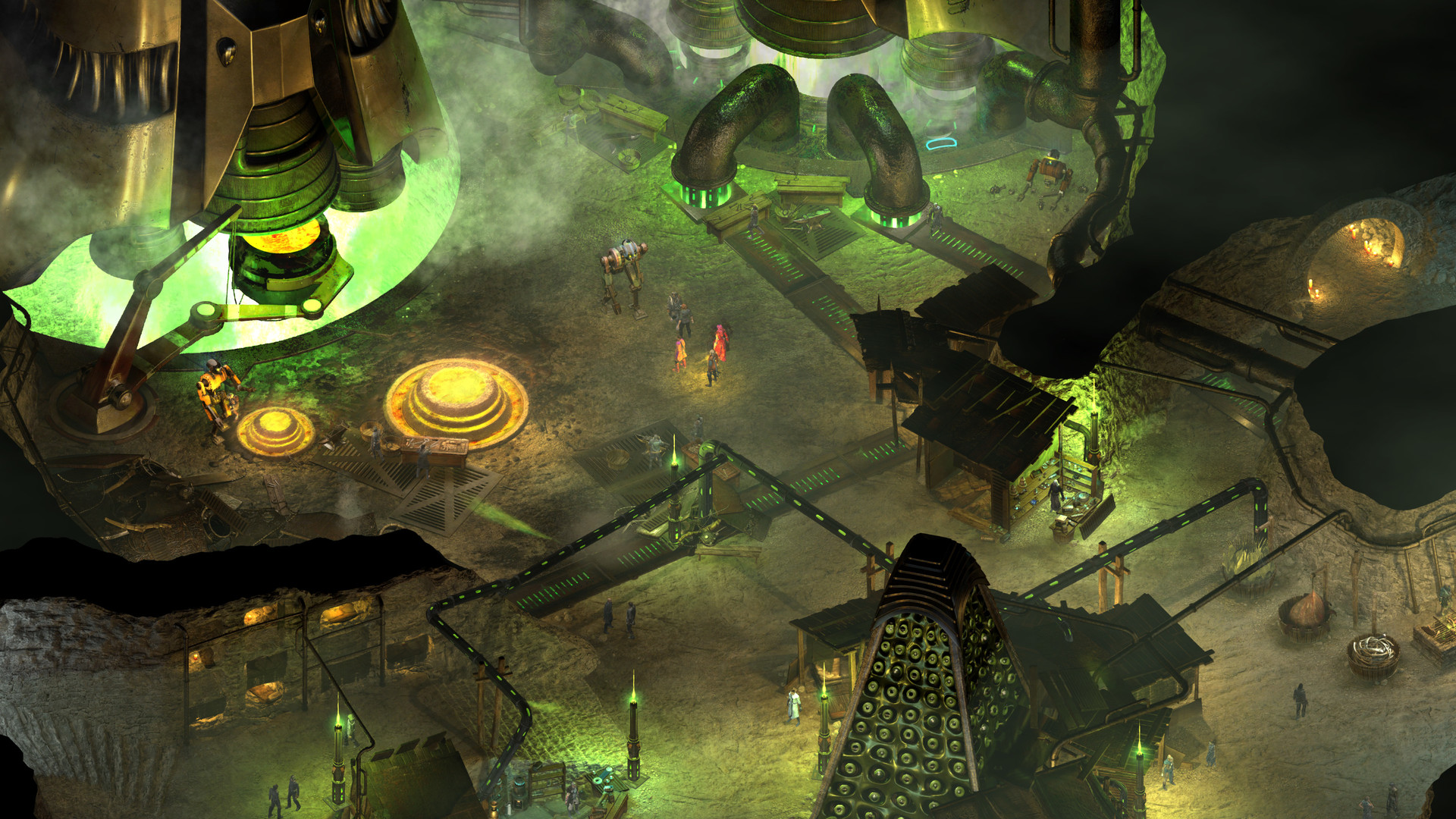
Set one billion years from today, inXile Entertainment’s Torment: Tides of Numenera still finds relevance in asking, “Who are you?” Playing with concepts of time, reality, mental space and alternate dimensions, Torment: Tides of Numenera isn’t an existentialist diatribe stretched over hours upon hours of dialogue. It’s a mysterious journey, one defined as much by the questions you ask as the decisions you make. And it’s massive, intertwining the congruent and in-congruent threads that spin through its multiple worlds.

"I hesitate to call Torment: Tides of Numenera “old-school” with its story-telling. Even for a Western computer RPG, Tides of Numenera focuses more on dialogue, exposition and decision."
In the far future exists an immortal being. Using his vast pools of knowledge, this being has managed to achieve immortality, moving from one body to another and never dying. Upon leaving a body, however, the personality of that person returns and they are dubbed a Castoff. You play as one such Castoff, a “falling star” in both the literal and figurative sense, crashing down upon the world. Your sire’s acts haven’t been without repercussions – he’s earned the ire of The Sorrow, a dangerous beast that threatens to annihilate him and you. You, The Last Castoff, are special though. Why are you immortal? Will fixing the Resonance Chamber help rid you of The Sorrow? That’s how your journey begins.
I hesitate to call Torment: Tides of Numenera “old-school” with its story-telling. Even for a Western computer RPG, Tides of Numenera focuses more on dialogue, exposition and decision. At the very beginning, trapped within the recesses of your mind, you pour through dozens of lines remembering your life as a vessel, all while creating your own identity.
You can choose to be a Nano, skilled in magic; a Glaive, the bastion of hitting things really hard (or stabbing them real deep); or a Jack, one capable of doing pretty much anything. Each class comes with its own set of skills and that’s not including the perks you can choose to specialize in like Persuasion, a deeper understanding of language and machinery, Quick Fingers and much more. You can also allocate skill points to the three core stats – Strength, Speed and Intelligence.
"It’s all handled masterfully though – unlike the sheer volumes of text that, say, Pillars of Eternity throws at you, Tides of Numenera has plenty to say while also getting to the point fairly quickly."
Your actions in Torment are defined by these three stats. Pretty much any action can be performed normally but spending points from these stats will increase your chances of success. Smashing something, for instance, will be more successful if you allocate a few Strength points. Convincing a band of thugs to back off is all a matter of persuading or intimidating them away, spending your core stats to increase the likelihood of success. The higher a particular perk, the better your chances of completing actions without spending excess points.
Dialogue is at the heart of Torment though. Players new to this kind of RPG may feel overwhelmed at the amount of reading that has to be done. It’s all handled masterfully though – unlike the sheer volumes of text that, say, Pillars of Eternity throws at you, Tides of Numenera has plenty to say while also getting to the point fairly quickly. You’ll learn about your sire’s journeys and how a cult was created to learn more about him. You’ll engage in a long-winded conversation with an otherworldly creature attempting to lash out from its energy prison. You’ll discuss the intricacies of growing meat with a man who has toes growing all over his body. You’ll attempt to save a woman from a being that’s constantly in her head, talking to her. Or you’ll convince said woman to kill herself in order to find peace.
That opens up the other beauty of Torment, namely the “Tides”. The Tides are a means to power, which makes sense given how your sire used them to achieve Immortality. Your every action in the game will influence the Tides, represented by different colours. The Gold Tide, for instance, represents benevolence and self-sacrifice and will rise anytime you do something charitable. These will ultimately dictate how the world reacts to you, though it may not be immediately obvious at first.
"Even with the decent range of skills and items, combat in Torment: Tides of Numenera doesn’t feel as extensive as Divinity: Original Sin."
You’re encouraged to simply do what you believe is right in Tides of Numenera. The benefits – or consequences – will catch up to you eventually especially with regards to ending. If you want to boost your chances of success and think a particular skill will come in handy, use it beforehand to increase, say, your Perception or conversational skills. They won’t do much to prevent your death but it’s fine – for The Last Castoff, death is pretty much a speed-bump on the road to self-discovery.
At this point, it’s important to point out the role of combat in the game. Battles are turn-based and you have fixed distances where you can move your party members. The same core stats come into play for actions, determining how much additional damage basic attacks (or spells) can do. Artifacts confer different bonuses to your characters, making them more resilient or even passively enhancing select perks. Cyphers are special items that can negatively affect you with status effects if you’re carrying too many. Some are consumable on the first use but there are others which can withstand multiple uses. Not all status effects, referred to as Fettles, can be negative as you can gain increased resistance enemy attacks, convert damage to a specific damage type or even convince enemies to fight for you.
Even with the decent range of skills and items, combat in Torment: Tides of Numenera doesn’t feel as extensive as Divinity: Original Sin. Given how many alternatives there are to combat, it’s not weird to avert a Crisis from time to time. Some may consider the overall combat to be weak or simply less interesting than other aspects and they may be right. As it stands, the combat is less tactical and decidedly more straightforward even with all the options at your disposal but it’s inclusion doesn’t diminish the experience overall. However, if you’re seeking a stronger balance of combat and plot in your RPG, you may struggle to get into Torment: Tides of Numenera. Random battles are completely absent and no conflict occurs unless you specifically seek it out.
"It’s testament to the strength of great writing that deals in dialects, personalities, traits, nuances, etc. and less in stereotypes and clichés."
However, there’s so much more to appreciate here. Stories and side-quests intermix throughout. At one point, I managed to travel deeper into the caves of Sagus Cliffs after successfully brokering peace with a race of electricity-eating creatures. This was, of course, because I was in pursuit of a ritualistic murderer who decided to make an example of a criminal lackey and the woman that I was pursuing, another Castoff named Matkina who’s a notorious assassin, may have clues.
This led to Matkina lending me a Mere to travel back in time and deal with past treacheries, changing the events that damaged her (though I gave her two conflicting strands of memories so probably not my best play). From there, Matkina joined me as a companion. Then I decided to jump off of a cliff because why not? This brought me back to my labyrinth of a mind where I immediately went to save three other Castoffs, trapped within the mental construct I had created, from an offspring of The Sorrow. After defeating it and waking up, I was casually asked by the local cannibal cult leader if he could devour me to attain my secrets. I politely refused.
That’s just one example of the diverging directions your story can take and the fact that Torment: Tides of Numenera is full of such wondrous characters, be they Companions or NPCs, is astonishing. It’s testament to the strength of the writing that deals in dialects, personalities, traits, nuances, etc. and less in stereotypes and clichés. It is kind of weird how you can enter skill checks and choose to exit them if you don’t have enough points to spend without any repercussion though.
"Regardless, Torment: Tides of Numenera is an incredible achievement of behalf of inXile Entertainment."
The relatively strong voice acting and music belie the game’s visual style. Those who grew up with Baldur’s Gate and enjoyed Pillars of Eternity or Wasteland 2 will be right at home in this mix of fantasy, science fiction and alternate dimensions. Personally I liked the aesthetics of Shadowrun: Hong Kong’s cyberpunk noir and Divinity: Original Sin’s bright fantasy setting. Torment’s art direction, however, conveys a sense of grimness that’s still immensely appealing. It’s more down-to-earth, if you will, and the character design is immensely distinctive. Once again though, if you’re expecting cutting edge graphics, then Torment: Tides of Numenera isn’t for you.
Torment isn’t without its share of technical niggles. Sometimes I had to position my character in a specific place to initiate a conversation or action. Other times, when dialogue was being spoken and I attempted to skip it, the previous thread would continue till the end. I would have preferred the spoken dialogue picking up immediately with the next paragraph.
Regardless, Torment: Tides of Numenera is an incredible achievement of behalf of inXile Entertainment. It may not have the tactical combat that games like Wasteland 2 or Divinity: Original Sin are known for but Tides of Numenera doubles down on the plot and decisions, making each step of your well-written journey significant. It’s an anomaly in today’s world of CRPGs, much like Planescape: Torment was back in the day and once the Tides take you, you’ll be loath to let them depart.
This game was reviewed on PC.
Wide range of choices for defining your character and a good list of ways to influence your path. Well-written dialogue and extensive characterization with a strong setting. Intersecting narratives feel fluid and natural, especially with the addition of Tides. Awesome characters and companions.
Combat is rather de-focused and not as tactical as other CRPG greats. Some uneven issues like positioning for conversations. Excellent aesthetic isn't backed by the most cutting-edge graphics.




















